An exploration of field-based early childhood teacher education in Aotearoa New Zealand
1. Description of study, its context and its strategic value Purpose This study seeks to capture the reality and process of field-based early childhood teacher education using the classroom and the learning encounter as a unit of analysis. It includes a beginning focus on, but is not limited to, interactions between “Student And student”, “lecturer […]
Literacy and e-learning: Mining the action research data
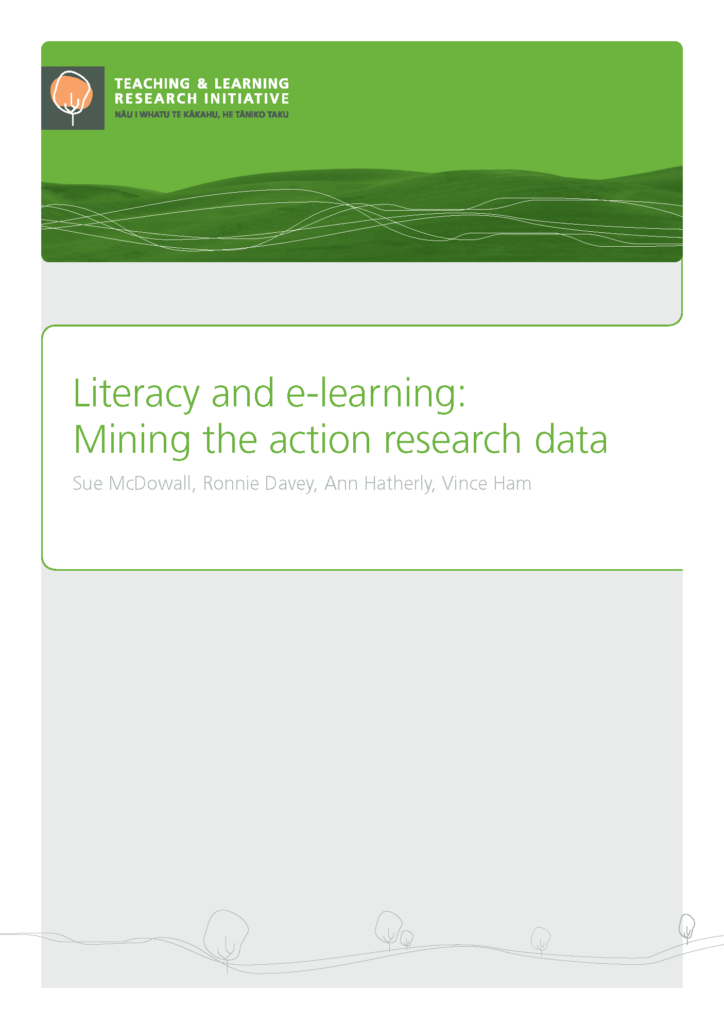
Introduction In this project, researchers and teachers (ECE, primary, and secondary) worked together to analyse unpublished data from a range of action research inquiries on e-learning to articulate, investigate, and build theory about the literacy learning that takes place in e-learning contexts. This summary report provides an overview of our cross-project analysis. The teachers’ case […]
Inquiring minds, meaningful responses: Children’s interests, inquiries, and working theories
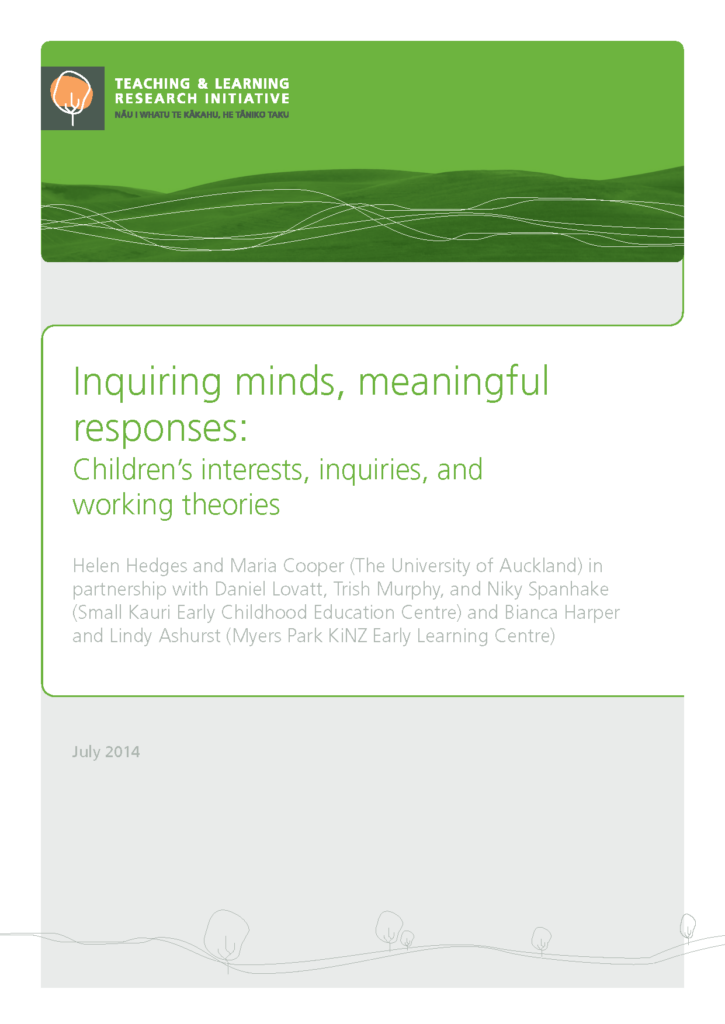
Introduction: Research rationale and aims In keeping with the spirit, aims, and principles of the Teaching and Learning research Initiative (TLRI) programme, the following whakataukī has guided our research project: Ma te mahi ka mohio, ma te mahi ka marama, ma te mahi ka matatau. Through practice comes knowledge, through knowledge comes understanding, through understanding […]
Pedagogical intersubjectivity: Teaching and learning conversations between children and teachers
Introduction This project builds on prior national TLRI research investigating teaching and learning episodes between teachers and child during their everyday interactions (Carr, et al., 2008; Davis & Peters, 2008). These prior studies indicated that teachers sometimes found it difficult to: choose which of the children’s interactions they should involve themselves in to develop opportunities […]
Moments of wonder, everyday events: Children’s working theories in action
This two-year research project explored children’s working theories in action. We looked at the ways young children expressed their working theories and how these were understood and fostered in Playcentre[1] environments. The findings show ways that children express and develop working theories, how practitioners understand these, and how best to respond to this learning. Key […]
Move, Act, Play, Sing (MAPS): Exploring early childhood arts teaching and learning strategies and concepts through community arts interventions
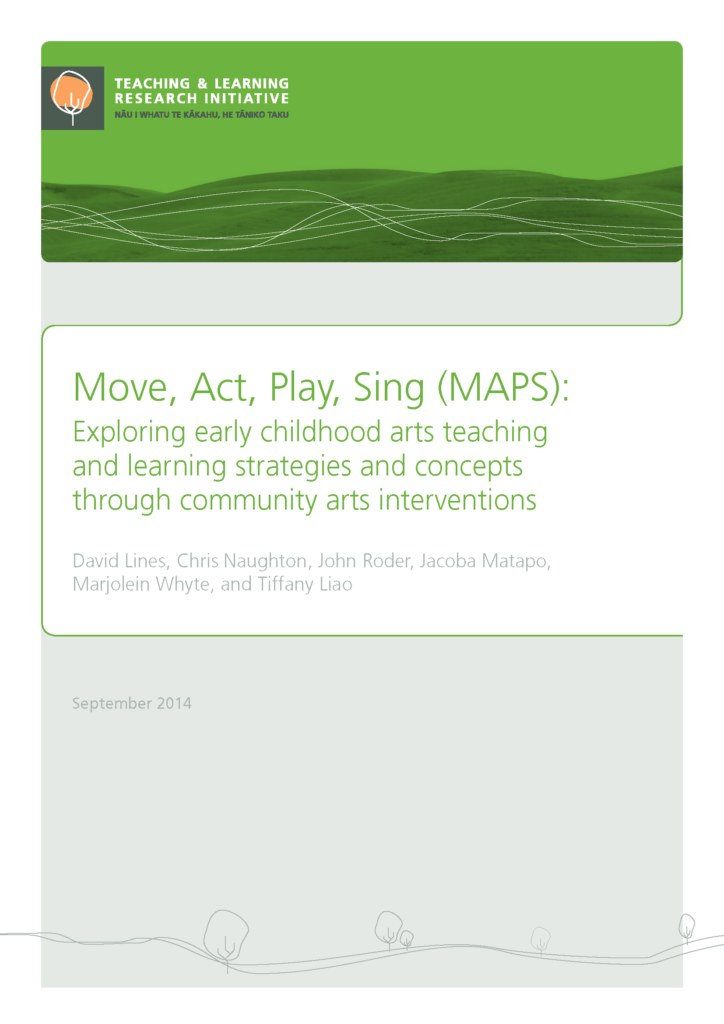
Introduction Move, Act, Play, Sing (MAPS) explored early childhood teaching and learning in the performing arts through community artist interventions and relational practices and pedagogies. The research developed three early childhood centre case studies where teachers, children, and parents worked together with community artists, the research team, and other colleagues to explore emergent pathways of […]
Titiro Whakamuri, Hoki Whakamua. We are the future, the present and the past: Caring for self, others and the environment in early years’ teaching and learning
1. Aims, objectives and research questions Drawing from both kaupapa Māori and Western perspectives, this study has focused on global issues of ecological sustainability in a variety of local/national early childhood education contexts. It has aimed to contribute to an emerging body of research which illuminates, documents and integrates possibilities for early childhood education pedagogies […]
Children as teachers: families as learners
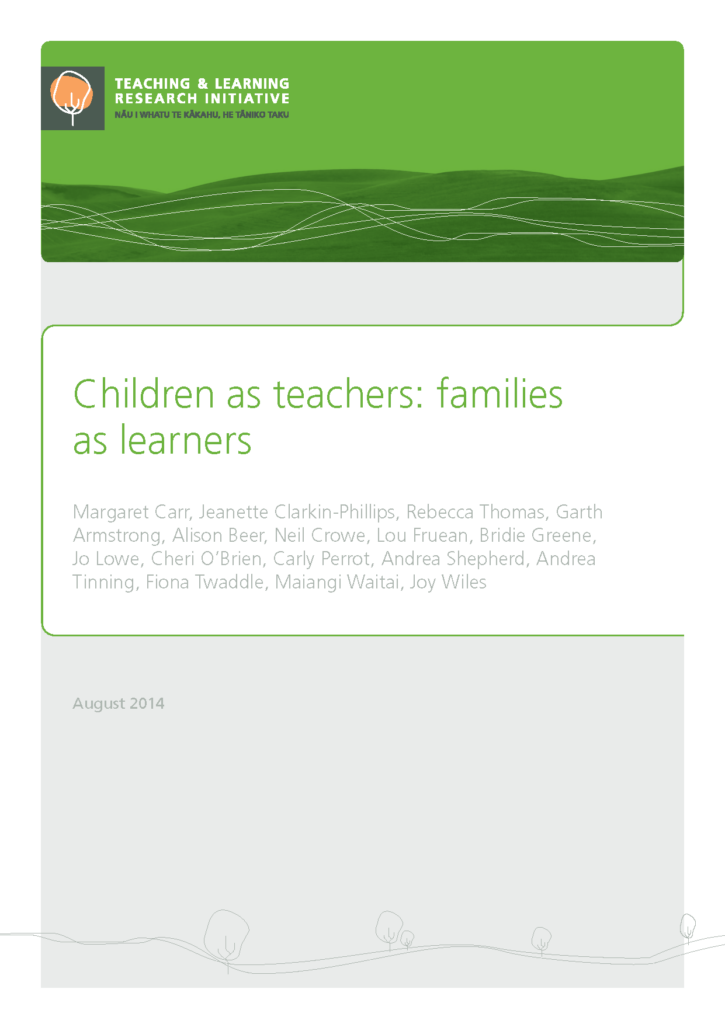
Introduction In this project, the research team—a collaboration between teacher researchers and university researchers— was interested in finding out about how children as teachers might engage their families as learners at a museum. This project had two parts. First, it was about young children as museum guides, explaining their understandings about a museum exhibit or […]
Active adult participation in early childhood education: Enhancing child learning and community wellness
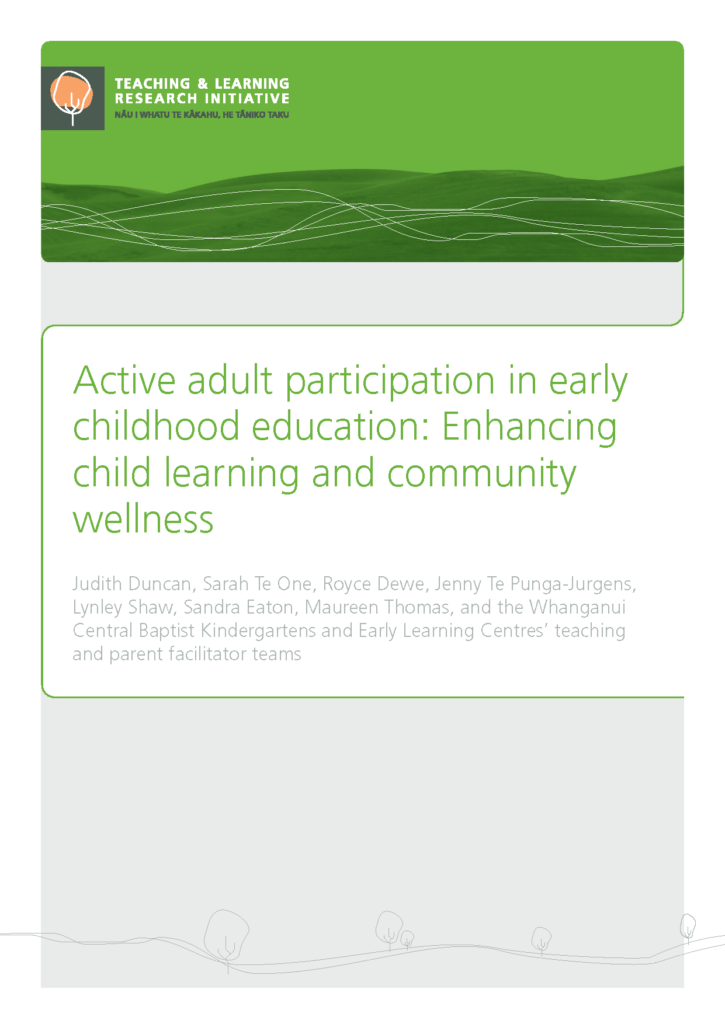
Introduction In our qualitative research project (2010–2012), the team investigated how “ordinary” early childhood centres enacted “extraordinary” pedagogy by including families, wider whānau and communities in the “everyday” of early childhood programmes; that is, within this project, we explored both theoretical constructs and teaching and organisational strategies to increase parent participation and positive learning outcomes […]
Supporting Teaching and Learning in Home-Based Early Childhood Education
E tipu e rea mo ngā rā o tō ao. Grow up, o tender shoot, and thrive in the days destined for you. Introduction Children’s early years set the stage for their future development, in education and beyond (Poulton, Gluckman, Potter, McNaughton, & Lambie, 2018). In New Zealand, and internationally, many young children spend time […]
Strengthening belonging and identity of refugee and immigrant children through early childhood education
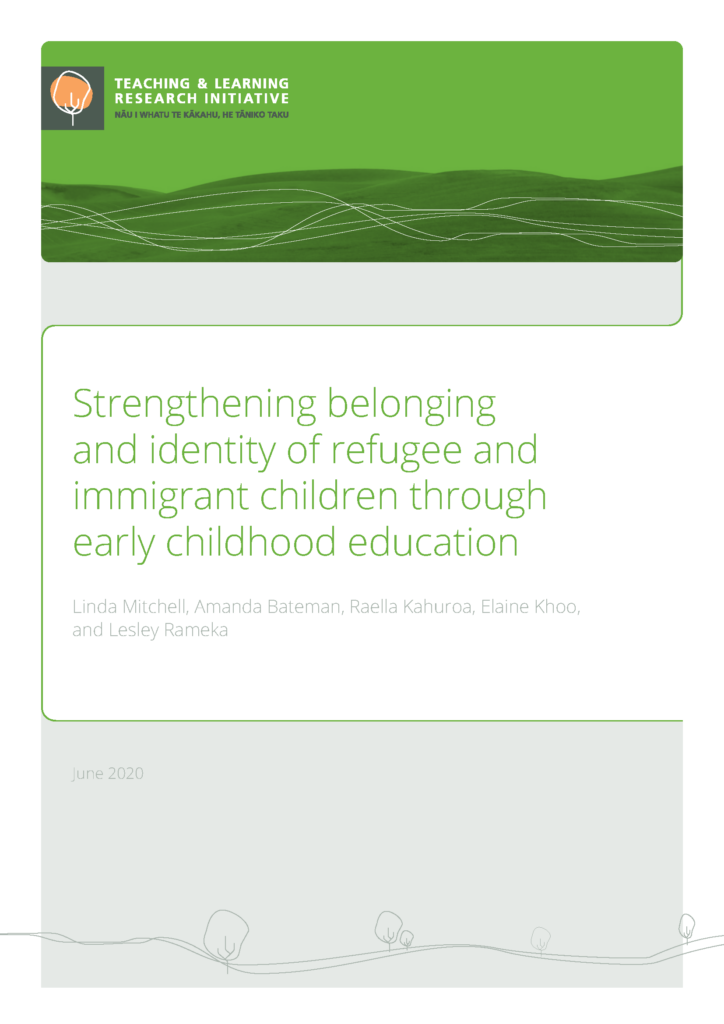
Introduction This project explored the role of early childhood education (ECE) and pedagogical strategies in supporting a sense of belonging and identity for refugee and immigrant children and families in Aotearoa New Zealand. We used a design-based research methodology in four culturally diverse ECE settings to develop and trial theories and strategies about how ECE […]
Age-responsive pedagogies: ‘Preschool’ ECE teachers interrogate their dialogues with and about two-year-olds
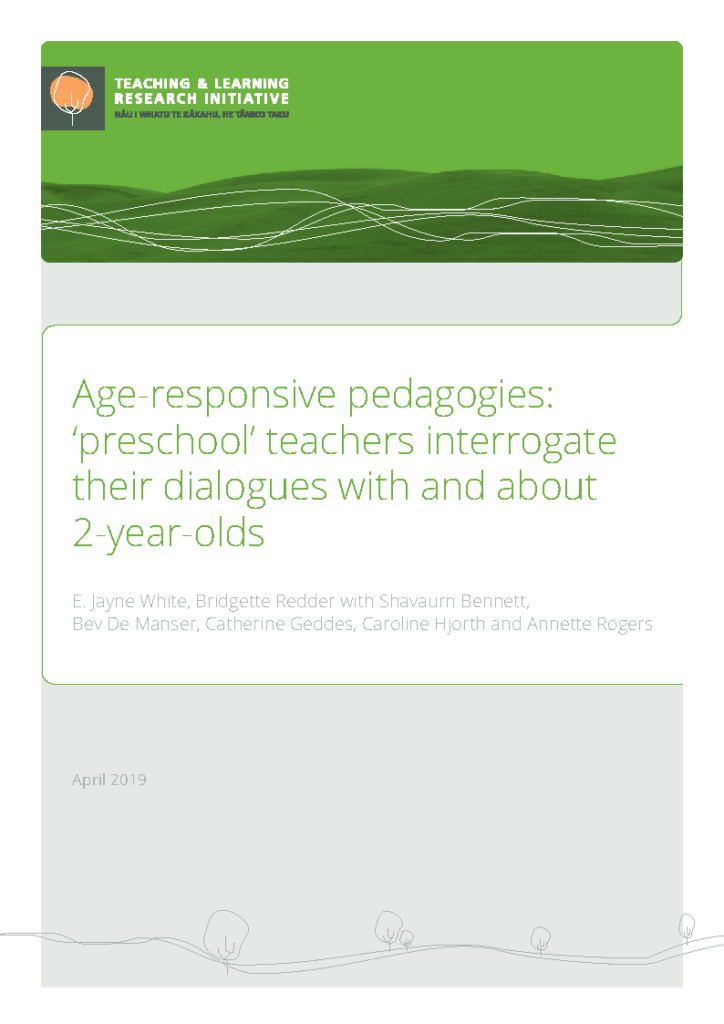
Our study highlights how careful attention to, reflection on, and critical engagement with the dialogues of 2-year-olds in preschool ‘mixed-age’ settings can help teachers work more effectively with these learners. The teachers in our study carried out in-depth coding of, and reflection on, comprehensive video footage of dialogues involving 2-year-olds in two preschool settings over […]
Te Whakapūmautia te mana: Enhancing Mana Through Kaitiakitanga
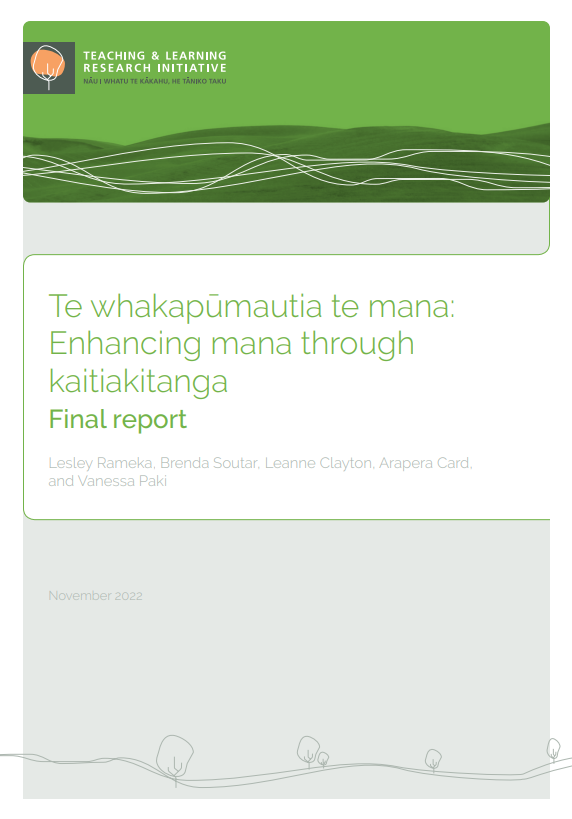
Introduction Wellbeing is fundamental to an individual’s ability to function and live well (Durie, 1998). Wellbeing statistics in New Zealand highlight that Māori have some of the worst levels of educational attainment, high levels of unemployment and incarceration, decreasing levels of home ownership, lower than average incomes, higher than average mortality rates, inequitable access to […]
Pepe meamea in the spirit of the collective: Embedding Samoan indigenous philosophy in ECE for Samoan children under two
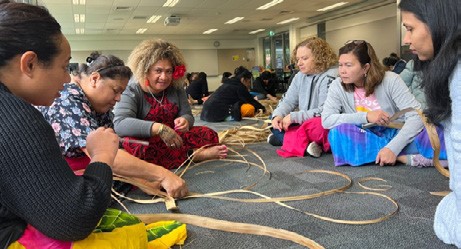
Introduction Our approach to research intentionally engaged processes of co-design whereby the study of pepe meamea (Samoan conceptualisation of infants and toddlers) with our research partners ensured that the values and practices of Samoan Indigenous knowledge systems were privileged throughout all stages of the research. The co-design process we collectively premised affirms relationality that grounds […]
Data, knowledge, action: Exploring sustained shared thinking to deepen young children’s learning

Introduction and Background This TLRI project is part of a larger programme of research referred to as the Data, Knowledge, Action project. The Data, Knowledge, Action programme of research focuses on the development and use of innovative and authentic data systems to help early childhood teachers in Aotearoa New Zealand examine young children’s curriculum experiences […]
